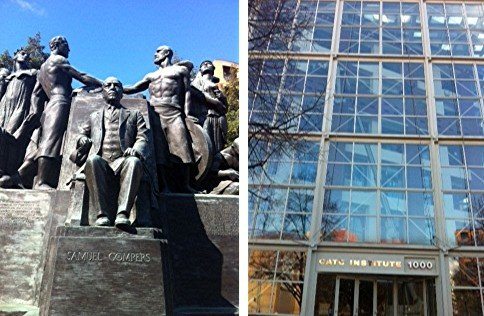

What do 19th century labor leader Samuel Gompers and the virulently anti-union think tank, the Cato Institute, have in common? More than you might imagine. They actually stare out at each other across Massachusetts Avenue in Washington, D.C. Or rather, the beautiful monument of Gompers and Gompers Square sit directly opposite Cato’s towering, modern offices, where the Koch brothers regularly plot strategy.
I discovered this humorous anomaly while moving into my temporary apartment around the corner, on 11th Street and Massachusetts Avenue, as I prepared to begin a three-month fellowship at Georgetown University — and a project that will look at ways to link to federal policy our efforts to build a new economy for all in Los Angeles. More on that later.
In memory of Gompers, I decided to create an imagined dialogue between the Cato Institute — now embroiled in an internal brouhaha involving the Brothers Koch – and their ever present bronze nemesis,


 Few can claim as much knowledge of both sides of America’s polarized wealth divide as Rick Wartzman. During his 20-year career as a journalist, Wartzman delved deep into the reality of poverty for a major Wall Street Journal examination of the minimum wage and also mastered the intricacies of corporate finance as business editor of the L.A. Times. At the Times he also originated one of the paper’s only serious attempts at understanding the real economic challenges of our time, a column that the Times soon jettisoned, making clear that covering the lives of the working class — truck drivers, hotel workers, factory hands — was not a priority.
Few can claim as much knowledge of both sides of America’s polarized wealth divide as Rick Wartzman. During his 20-year career as a journalist, Wartzman delved deep into the reality of poverty for a major Wall Street Journal examination of the minimum wage and also mastered the intricacies of corporate finance as business editor of the L.A. Times. At the Times he also originated one of the paper’s only serious attempts at understanding the real economic challenges of our time, a column that the Times soon jettisoned, making clear that covering the lives of the working class — truck drivers, hotel workers, factory hands — was not a priority.
Since 2007 Wartzman has served as executive director of the Drucker Institute, a think tank founded to perpetuate the legacy of management guru Peter Drucker and dedicated to bettering society by helping organizations to be more effective and responsible.
» Read more about: Drucker Institute’s Rick Wartzman on Greed and Conscious Capitalism »


Since when did one’s mode of transportation become about politics? Who ever thought that riding one’s bike to the grocery store, taking the bus to work or driving to run errands could be a sign of one’s political stripes?
In some cities, such as New York and San Francisco, riding the train defines the experience of everyone living there. Entire movies, books and blogs have documented the romance and day-to-day life of riding public transit and navigating busy sidewalks. Can you even imagine what a New York free of subways, buses and pedestrians would look like? Republican or Democrat, liberal or conservative, you’re on the train.
Just ask Mitt.
Mitt Romney is among a vocal set of Republicans who have decided that certain forms of transportation are more democratic than others; he subscribes to the belief that roads are a given right of Americans,
» Read more about: Highway Robbery: Mitt Romney’s War on Mass Transit »


Happy Birthday, Walmart! You great big mega-marketing rascal–you turn 50 this week. You’ve come such a long way from Roger, Arkansas, the tiny town at the foot of the Ozarks where you took your first wobbly steps.
Now you’re an international star! The planet’s biggest private-sector employer, with 2.2 million “associates” throughout the world—we usually call ‘em employees, but whatever– 1.4 million in the United States. Creator of history’s most efficient global supply chain, you call the shots on production, wage and workplace standards around the world—the Walmart business model ruthlessly undercut those everywhere. Plus you have shriveled and destroyed small business communities in towns across the United States.
Star power, dudes.
Now you are here in Los Angeles celebrating the big Five Oh with a new acquisition.
It’s tasteful, not large and gaudy, like your typical 200,000 square foot megastore.
» Read more about: Grand Illusion: Walmart's Birthday "Gift" to Chinatown »
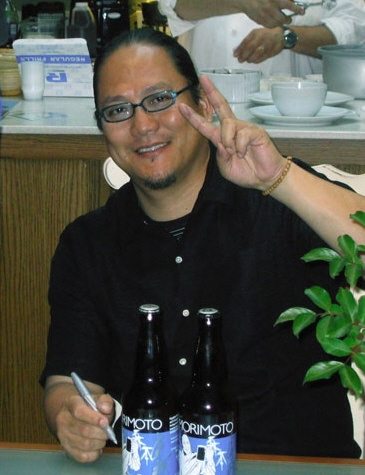

I’m going to hate writing this. Every word.
Last week Masaharu Morimoto of Iron Chef fame was outed by my union, UNITE HERE, Local 11 as being in talks with the Hyatt Andaz hotel to take over the RH restaurant, where I work as a server.
I first became aware of the news when I arrived at a large picket in front of the Hyatt Andaz. The action was two days before Valentine’s Day. I was late to the picket because, as noted in an earlier column, I had to drive my mother-in-law to Walmart — which still pains me to admit.
The action in front of my hotel, like many before, was about protesting current work and safety conditions. It was co-sponsored by OUT and OCCUPY, which is a LGBTQ organization that has been unified with UNITE HERE Local 11 in making sure that all workers,


Frying Pan News writer Donald Cohen appears on television tonight in a segment of KCET’s SoCal Connected to discuss El Segundo’s alleged sweetheart tax deal with the Chevron oil corporation, whose local refinery has long dominated the town’s commerce and politics.
The case became a scandal when El Segundo’s city manager, Doug Willmore, was sacked after he purportedly dug up details of a 1994 agreement between Chevron and city officials that codified the company’s low tax payments in perpetuity.
The Channel 28 program, “Small Town, Big Oil,” airs 9 p.m. Friday, with repeat showings scheduled for the following week . Click here to see entire episode.
» Read more about: Spotlight on El Segundo's Oil-Tax Controversy »

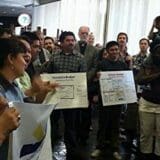
Long Beach hospitality workers are one step closer to better wages. After years of trying to improve conditions in the hotel industry, members of the Long Beach Coalition for Good Jobs and a Healthy Community filed paperwork to place a citywide measure on the November ballot that would require hotels to pay hospitality workers a living wage.
The living wage measure would affect hotels with more than 100 rooms, requiring them to pay workers $13 an hour. Research from past living wage victories in areas such as Los Angeles’ Century Boulevard has estimated that workers reinvest over two-thirds of their increased income back into the local community. Higher hotel wages in Long Beach would not only lift families out of poverty, but would spark a much-needed reinvestment in the city’s local businesses and neighborhoods.
A recent story and video in the Long Beach Press Telegram captures the kickoff to this historic campaign.


If you’re a woman, an artist, a cancer survivor or patient; someone with a connection to the Holocaust or the 1960s women’s movement — in fact, if you’re anyone who wonders how we human beings can endure indescribable suffering and come out the other end with something to say about it – you must see Alina Szapocznikow, Sculpture Undone at the Hammer museum before it closes April 30th. I fit a number of those categories and was deeply moved to find such connections with the work.
At the beginning of the exhibit you meet the artist (who died in 1973 at the age of 47) in a rough video. She’s young and lively and seems so innocent. When the thick-headed interviewer asks about her experiences as a young girl in a Nazi concentration camp, Szapocznikow responds with “it would be immodest to discuss my own suffering.” When the same off-screen voice asks her to describe what it’s like to be a woman in 1960s Poland,
» Read more about: The Body Reconsidered: The Art of Alina Szapocznikow »
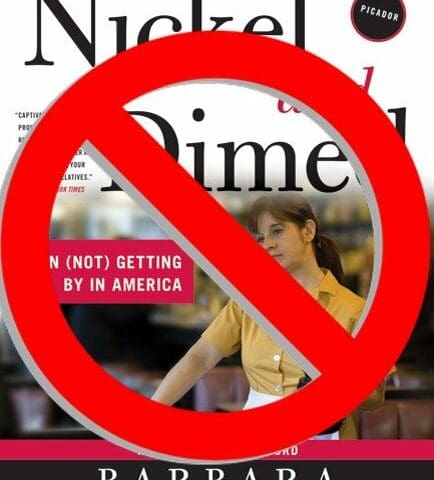

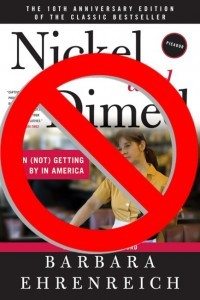 As an author, my place on bookshelves is precarious. You can have your book banned in this country for any number of reasons. Schools especially might find a book profane or inappropriate. Or, as in the case of J.R.R. Tolkien’s The Lord of the Rings, your work might be thrown into the pyre for being “satanic.”
As an author, my place on bookshelves is precarious. You can have your book banned in this country for any number of reasons. Schools especially might find a book profane or inappropriate. Or, as in the case of J.R.R. Tolkien’s The Lord of the Rings, your work might be thrown into the pyre for being “satanic.”
None of this surprises me. This does: Barbara Ehrenreich’s well-received 2001 book Nickel and Dimed was removed from a personal finance class in Bedford, N.H., for being “anti-capitalist.”
Seriously.
Nickel and Dimed chronicles Ehrenreich’s quest to explore our economy from the perspective of an “unskilled” worker. Propelled into her social experiment by the debate over welfare, she moved across the country, taking the cheapest lodgings and whatever work she could find, from clerk to hotel maid. The result sheds light on the experience of what it means to survive on poverty-level wages in the U.S.
» Read more about: Banned in America: The Truth About Poverty »
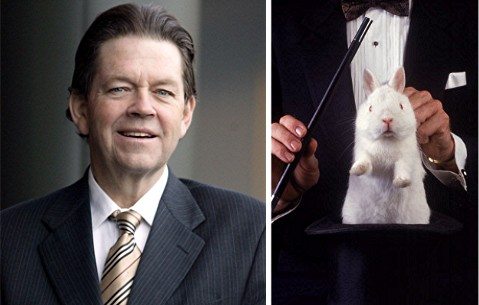

One of our favorite pastimes at Frying Pan News is exploding those irritating little factoids the Right likes to use to make its case for some policy or another. Myths like the Welfare Queen, or overpaid public employees, or the perennial American classic about bootstraps. (Since it seems that so many of these fraught conversations take place at family gatherings, we often call them “brother-in-law conversations.”)
Just in time for tax season, a new myth has been making the rounds: that states with no income tax fare better, economically, than other states. This notion is most associated with Arthur Laffer, the voodoo economist, but it has been amplified by, among others, ALEC (American Legislative Exchange Council) and the Wall Street Journal. Unsurprisingly, state politicians have taken up the call: In the name of spurring growth,
» Read more about: Taxing Logic: One Revenue-Cutting Trick Is a Real Laffer »

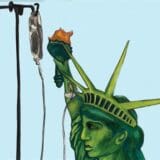
By Richard Kirsch
(In the following excerpt from his new book, Fighting for Our Health, Roosevelt Institute Senior Fellow Richard Kirsch notes that many small business owners support health care reform even if the organizations that claim to speak for them don’t. Used by permission.)
Small business is iconic in America. For years, big business has cleverly used small businesses to be messengers for campaigns financed by corporate America. And anti-government, free-market orthodoxy has dictated the policies of the leading small business associations, including the National Federation of Independent Businesses (NFIB). A powerful example of NFIB clout was the key role that the association played in defeating the Clinton health care plan. If we needed any reminder of that, President Obama asked the heads of just two lobbying groups, the NFIB and the health insurance industry, to speak at the White House health summit held shortly after his inauguration.
» Read more about: Success Costs Small Business Owner His Health Insurance »


Matthew Fleischer, over at Fish Bowl L.A., notes approvingly that APM radio’s Marketplace program will begin broadcasting stories about people who are not billionaires — but who, instead, are struggling in the trough of America’s current economic mood swing. Says Fleischer:
Well, here’s a welcome surprise. The national media is starting to realize that the oligarchical distribution of wealth to the top one percent of Americans isn’t a manufactured Occupy Wall Street narrative. American Public Media’s Marketplace announced today that it’s launching a new “Wealth and Poverty Desk” focused on “the growing concentration of wealth in the U.S.”
We’ve all wondered what a section of the news devoted to labor and to those not working would look — this could be a good start. This week Marketplace began its new project by profiling the “working poor”
» Read more about: WebHot: Marketplace's “Wealth and Poverty Desk” »
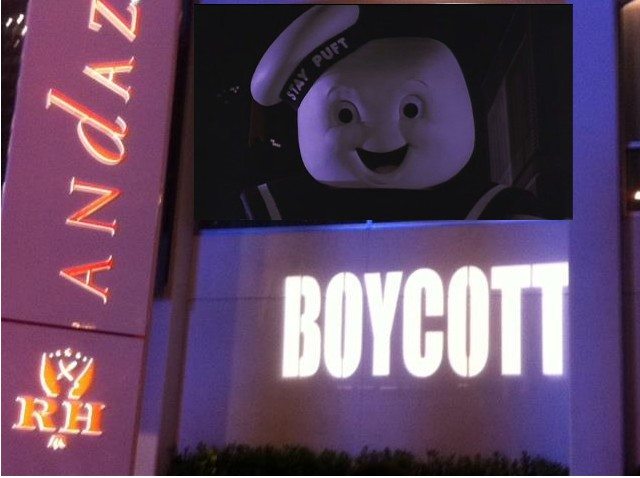

On a recent Wednesday I was walking to my job at the RH restaurant inside the Hyatt Andaz Hotel on the Sunset Strip. Per my daily routine, I stepped into Starbucks to get my double-shot caramel macchiato. Near the window I sat near a blonde woman who was chatting it up with a dark-haired man in a suit. Weird, I thought to myself. That looks like Callista Gingrich, the third wife of Newt Gingrich and potential First Lady of the United States.
If it wasn’t her, this woman could’ve have easily passed for her body double. Were she an actress with any talent she could secure the spousal role if Hollywood decided to do a bio of Newt’s campaign, which I imagine would merely be the retelling of Don Quixote. Hollywood, are you listening? The Quixotic Adventure of Newt Gingrich has a nice ring to it.
» Read more about: Did Newt Gingrich Ignore a Hyatt Boycott? »
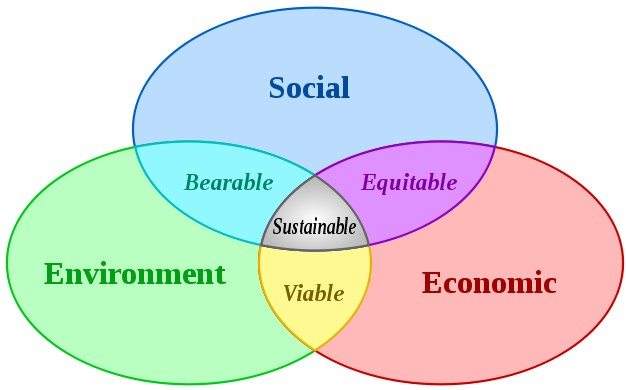
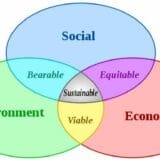
By Ashley McCormack
One of the major focuses of this presidential election year is the economy and the ways we can create jobs. President Obama’s State of the Union address and the Republican debates make it clear that everyone has an opinion about how to put Americans back to work. It’s equally evident that a good jobs plan must build a sustainable American economy – from an environmental standpoint as well as one that will benefit the next generation, and employ people in the kind of jobs that will keep America competitive in the global economy.
 Each year, the BlueGreen Alliance hosts Good Jobs, Green Jobs, a national conference bringing together labor, environmental, business and elected leaders to discuss how we can build an economy that creates precisely such jobs. In this pivotal year, instead of hosting one national conference,
Each year, the BlueGreen Alliance hosts Good Jobs, Green Jobs, a national conference bringing together labor, environmental, business and elected leaders to discuss how we can build an economy that creates precisely such jobs. In this pivotal year, instead of hosting one national conference,


It’s fascinating to watch an industry attempt to define and structure itself as it comes together. Imagine Silicon Valley in the late 1990s, nuclear power in the 1960s, alcohol in the 1930s, or the auto industry in the 1900s and 1910s.
I got to see shades of this recently when I visited the High Times Medical Cannabis Cup, held at L.A. Center Studios. Despite the carnival atmosphere, this was essentially a trade show for an industry in its inception. A friend had to deliver some union materials to a labor-friendly vendor, and I tagged along, chatting with representatives from all segments of the industry.
Most press accounts have caricatured the industry as a joke. But with potential national revenue that could be as large as $120 billion annually (estimating the true size is notoriously difficult), and with boosters predicting potential California employment in the tens of thousands,
» Read more about: Seeing Green: Is an Underground Industry Going Legit? »


It wasn’t exactly Tahrir Square, but one recent Saturday afternoon, through modern technology, I joined an estimated two million people throughout Latin America, the U.S. and Canada in 500 different venues to experience a different kind of democracy movement – call it musical democracy.
We were all gathered to watch Gustavo Dudamel of the LA Philharmonic Orchestra conduct 1,400 performers in Gustav Mahler’s Eighth Symphony in Caracas, Venezuela.
The 1,200 young members of the chorus, and the Venezuelan musicians who played alongside the pros of the LA Phil, are products of “El Sistema,” the innovative choral and orchestral training system aimed at the country’s poorest children . The program currently involves 250,000 kids and 135 youth orchestras throughout the nation of 30 million. Dudamel is a product of that system, as are the numerous talented Venezuelan musicians now getting scooped up by topnotch classical music venues throughout the world.
Founded as an anti-drug,
» Read more about: Gustav, Meet Gustavo: Hearing Mahler in the Cineplex »
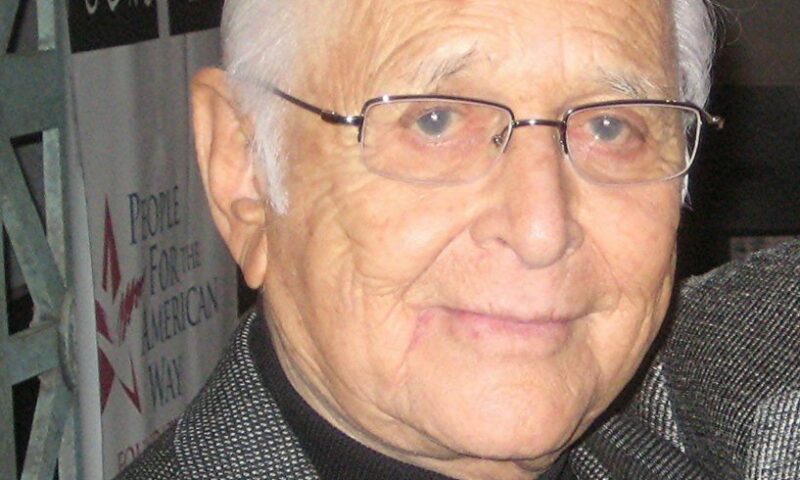

(The Los Angeles Alliance for a New Economy has just released its guide for policy activists in the form of a graphic novel and anthology of case studies. Here is veteran television producer Norman Lear’s forward to They Said It Was Impossible! How to Win Progressive Change When the Odds Are Against Us.)
I frequently meet people who love this country and worry that it is in deep trouble, but don’t know what they can do about it. It’s hard for them to see how an individual can make a real difference when our problems are so big.
But our history tells us that when individuals get together, we can create real and lasting change. And this publication tells us how LAANE is successfully taking on the challenge of building a new economy, one that is fair,
» Read more about: Norman Lear: Reclaiming Our Country, the Smart Way »
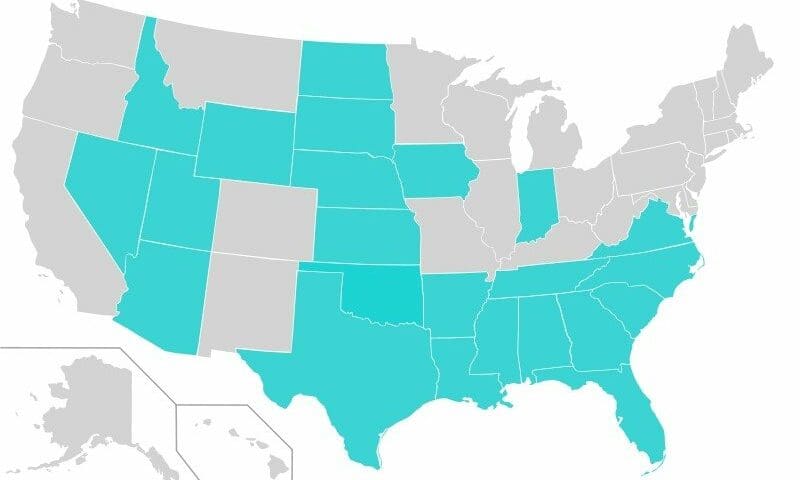

We’re currently riding a serious wave of attacks on labor unions from politicians. (Generally, but not exclusively, this has come from the GOP.) We all know about the assaults on public employee unions that started last year in Wisconsin, and have spread across the country, with proposed or enacted legislation in states such as Michigan, Ohio (subsequently repealed by voters), Indiana, and most egregiously, Arizona.
And then there’s the resurgence of so-called Right to Work legislation, which was just signed into law in Indiana, which became the first state to go RTW since Oklahoma in 2001. (That makes 23 right to work states overall.) Similar legislation is pending elsewhere, including Ohio, Minnesota, Michigan, and New Hampshire. Even states that are already right to work, like South Carolina, just want to get a little right to workier.
With Romney needing to establish more conservative cred,


Americans may be almost evenly divided about why a few people get so rich. But when it comes to why people are poor, there’s a general consensus: If people are poor, it’s their own damned fault!
This belief comes to us from British attitudes. Debtor prisons had a long tradition across the world, but England taught us that poverty was a moral failing. People were poor because they were sinful or impious or wastrels, so nothing could be done about it, and nothing should be done. Most Americans hold a similar view to this day, which is why the old “Welfare Queen” trope works so well for politicians.
Reality is less exotic. Real institutional systems make people poor and keep them there. Take wages. Despite California’s above-the-national-average minimum wage, no one can raise a family on it. Yet 65 percent of minimum-wage employees are the sole support of their family, on an income of only $16,640 a year.